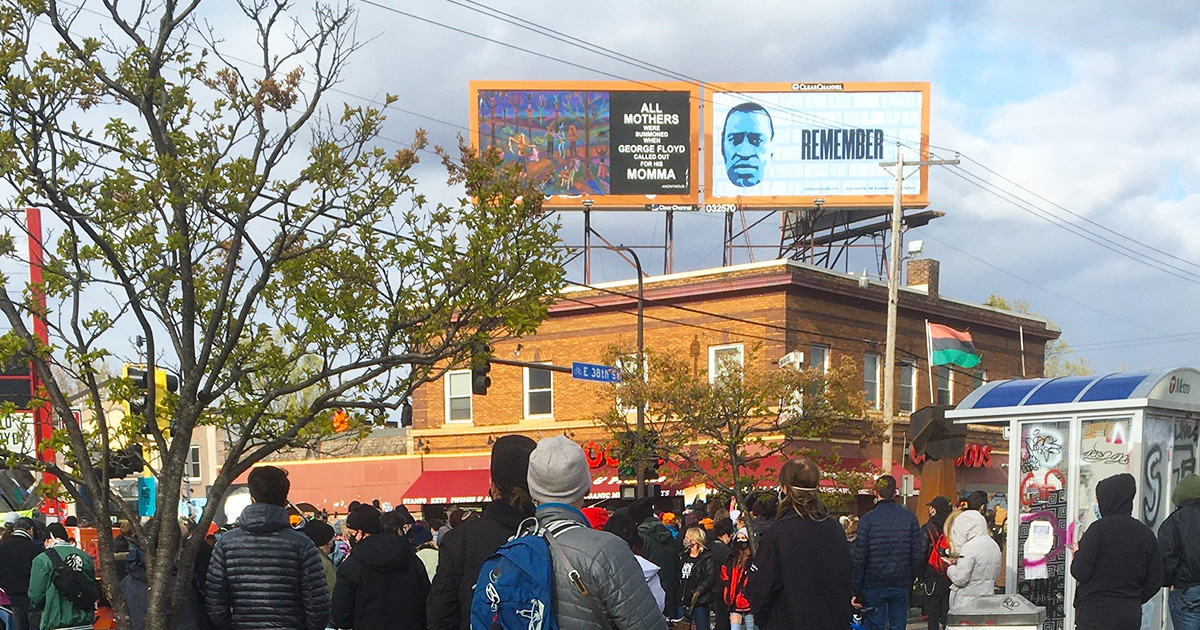A Historic Verdict—and the Continued Work toward Justice for George Floyd and All Black Americans
On Tuesday, the world heard the jury hand down Guilty verdicts in the trial of Derek Chauvin for the murder of George Floyd. The verdicts represent a critical step forward on our long road to live up to ideals of justice and equality. If only they could bring back George himself—bring him home to his family, to his friends, to his life here in our local community.
The jury’s decision concludes a year of reckoning in which Minneapolis and Minnesota held the national spotlight for the murder of George Floyd and for the inequitable and racist systems that are particularly pervasive in our communities. While no verdict could truly provide “justice for George”—the demand issued on our streets, walls, and yards over the last year—it did deliver the greatest degree of “accountability,” to echo Attorney General Ellison, that this judicial process could provide. This is thanks in no small part to the powerful role witnesses played in this trial, including 18-year-old Darnella Frazier who bravely recorded the video of George’s arrest and murder, documenting this atrocity for the world.
The jury’s verdict could also—possibly—represent a beginning. It was the first time a police officer has been held to account for killing a Black community member in Minnesota’s history. It was one of the most explicit instances of police officers breaking the “blue wall of silence” to condemn, publicly and under oath, the actions of a colleague. And while holding a murderer to account and speaking truth and defending justice in a court of law are the absolute least we should expect from our justice system and from public employees, the fact that we are finally clearing this low bar is a measure of progress. We must never go back.
Even with this significant verdict, our community and our country cannot yet claim to deliver anything close to justice or equality for our Black neighbors. Even as the Chauvin trial was underway, and as communities in Minnesota continued to discuss transformations to our systems of public safety, a Brooklyn Center police officer killed 20-year-old Daunte Wright at a routine traffic stop. As community members took to the streets to exercise their constitutionally protected right to protest police violence against black bodies, and as the press arrived on those same streets to share these expressions of justified outrage and sadness with the world, both were met with . . . more police violence. Then during the very same hour that a guilty verdict was announced here in Minnesota, 16-year-old Ma’Kiah Bryant was killed by police in Columbus, Ohio.
And police violence is just the tip of the iceberg. Our communities’ systems of injustice manifest in under-funded and inequitable education, inadequate and too-expensive housing, a discriminatory penal system, and environmental injustices that harm our Black communities. And yes, injustice manifests in our transportation systems: as highways that shatter our communities and poison our air; as car-ownership-as-a-required-entry-ticket for full participation in society; as poor transit service that keeps parents from children for long hours every single day; and as criminal penalties for failure to pay a $2 fare.
If we wish to deliver justice for George Floyd, and for Black community members across our state and country, we must join together to transform the underlying systems that perpetuate racism and injustice. And we must remember that this is not an abstract struggle, but rather one with humanity at its core. George Floyd was not a symbol. He was our neighbor. He worked down the street from us. He was a father. He was a brother. He was a son.

